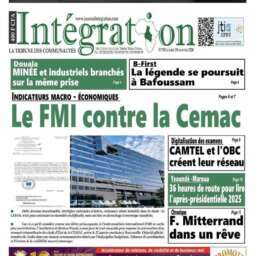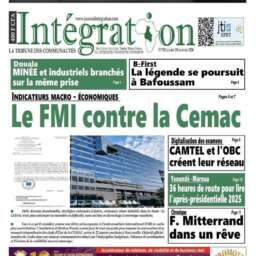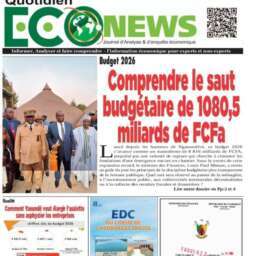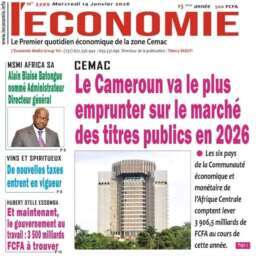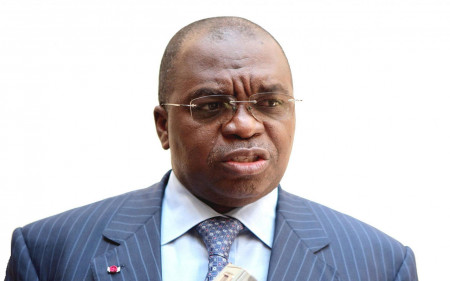(Business in Cameroon) – The Finance Minister of Cameroon, Louis Paul Motaze, has presented the 2024 Settlement Bill to Parliament, reporting that the State accounts achieved a 95.2% budget execution rate for the financial year. The presentation also revealed a budget deficit of FCFA 357.1 billion, higher than initially projected. During his presentation to the Budget and Finance Commission of the National Assembly on November 12, Minister Motaze outlined key fiscal performances and adjustments.
The 2024 financial year was marked by strong efforts to balance fiscal performance with socio-economic demands. According to the Settlement Bill, the State budget, initially set at FCFA 6,740.1 billion, was later increased to FCFA 7,278.1 billion to accommodate expenditure adjustments, notably for salary increases and the revised minimum wage. The bill outlines a general budget revenue collection of FCFA 5,015.6 billion, against a forecast of FCFA 5,151.1 billion, showing an execution rate of 97.7%. Expenditure, however, stood at FCFA 5,396.8 billion, exceeding the initial projection of FCFA 5,280.2 billion, equivalent to 102.2% of estimated spending. Adjustments made following the Audit Bench’s recommendations placed the overall execution rate at 95.2%, with total expenditure amounting to CFAF 6,895.5 billion.
According to the Settlement Bill, the execution of the State budget for the 2024 financial year, together with the adjustments made in light of the Audit Bench’s observations, indicate a budget deficit of FCFA 357.1 billion, compared with a projected deficit of FCFA 137.9 billion and a total financing requirement of FCFA 1.829.9 billion after budget execution. Minister Motaze in his presentation, explained that the 2024 Settlement Bill, comprising a main text and twelve appendices, covers both the general budget and Special Appropriation Accounts (SAA). Revenue under the SAA reached FCFA 42.4 billion, an execution rate of 74.6%, while expenditure stood at FCFA 18.3 billion, representing 27.8% of the forecast.
Minister Motaze noted that certain accounts, including those for reconstruction and development in the Far North, North West, and South West regions, were not operational during 2024, despite allocations of FCFA 35 billion. Similarly, the Electricity Sector Development Fund had FCFA 15 billion allocated but not fully utilised. The execution of the Public Investment Budget (PIB), which represented 22.2% of the State budget, was described as “generally satisfactory.” The PIB commitment rate reached 93.9%, up from 80.1% the previous year, with a physical execution rate of 69.4%. Resources transferred to councils amounted to CFAF 143.3 billion, representing a 24.6% increase compared to 2023.
Minister Motaze outlined the international, regional, and national context shaping budget execution. Globally, 2024 was marked by resilience in trade despite conflicts in Ukraine and the Middle East, and global economic growth of 3.2% with inflation at 5.8%. Within the CEMAC sub-region, budget deficits worsened in most countries due to falling oil prices, though growth improved from 2.5% in 2023 to 2.9% in 2024. At the national level, public finances were influenced by fuel price increases, reductions in domestic debt, and the successful conclusion of the sixth review of the Economic and Financial Programme. Inflation slowed to 5.0% from 7.4% in 2023.
The Minister highlighted ongoing reforms in State asset accounting, in collaboration with the Audit Bench of the Supreme Court. While the certification of accounts continued to result in an “unfavourable opinion,” progress was noted in identifying State assets, recording depreciation, and integrating provisions for litigation. “I would like to emphasise that no country in the world that has implemented the same reform, namely asset accounting, has obtained a favourable opinion at the end of the first few years of assets recognition,” Minister Motaze stated.
He assured Parliament that the reforms will continue in 2025, focusing on the recognition of tangible and intangible assets, valuation of liabilities, and integration of financial data to enhance transparency. The 2024 Settlement Bill will now undergo detailed examination by Members of Parliament before its adoption, in line with the legal framework governing the State’s fiscal regime and public entities.
Mercy Fosoh



















